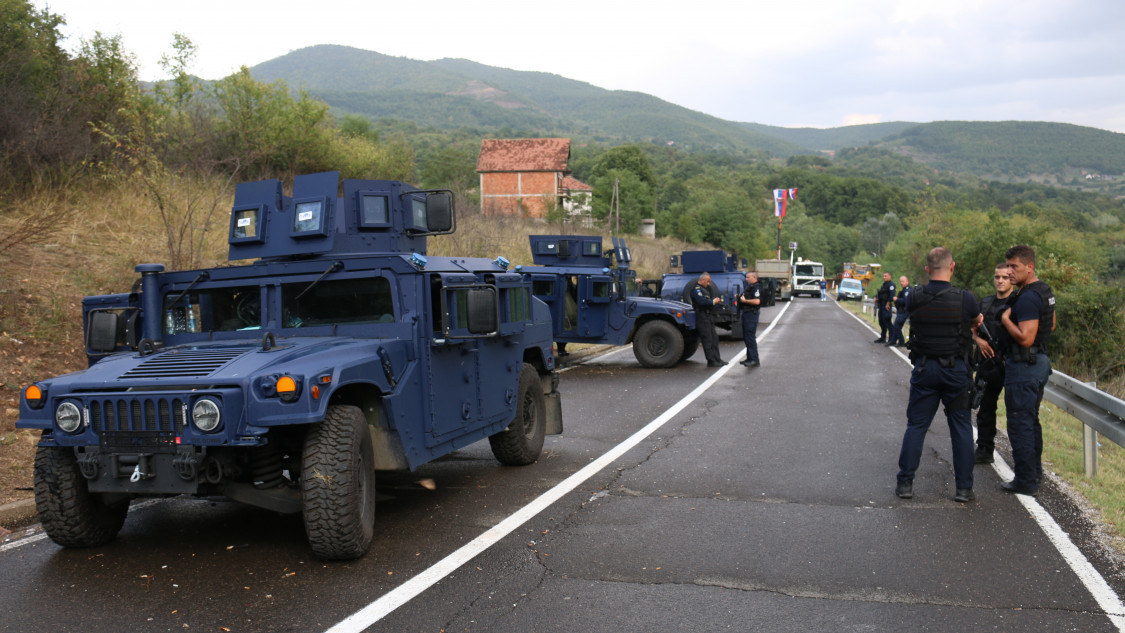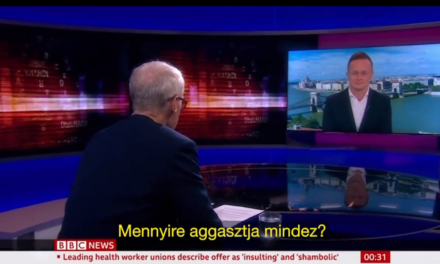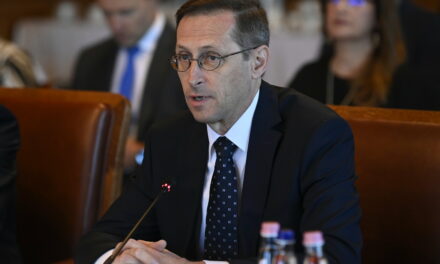The war in Ukraine has highlighted that Brussels and the leading European states have almost forgotten about the Western Balkans. And this could lead to the renewal of conflicts in the region, as well as the gaining of influence by other powers - Russia, China, Turkey - said András Kosztur, the XXI. In his interview with 888.hu, the leading researcher of the Szazad Institute.
The expert was asked about the Kosovo-Serbia situation, which has been strained to the point of pimples in recent days, and he said that, although the current conflict was triggered by the decree issued by the Kosovo leadership, which would have made Serbian documents invalid on the territory of the country from August 1, ultimately in 2008 the unsettled nature of the question of an independent state is the source of the contradictions.
The tense situation was finally settled under American pressure, and András Kosztur said that the United States has a huge influence in Kosovo, because the Western Balkan state owes its de facto independence to Washington.
In addition, many business and other interests tie the American elite to the region. The influence of György Soros' foundations is well known in the Albanian communities, but several American politicians in leading positions in the 1990s also converted their involvement in the Yugoslav wars into economic benefits. Thus, the recently deceased Madeleine K. Albright, who was the US Secretary of State during the Kosovo War, bought herself into the Kosovo telecommunications sector, and Wesley K. Clark, the commander of the European NATO forces at the time, bought herself into the energy sector, the researcher pointed out.
András Kosztur explained that the integration of the Balkan region had already slowed down before the war in Ukraine, and this contributed to the delay in settling the region's controversial issues.
The war in Ukraine only highlighted the fact that Brussels and the leading European states have almost forgotten about the Western Balkans, and this could lead to the renewal of conflicts in the region or to other powers - Russia, Turkey, China - taking over the role of mediator or initiator - he said.
Regarding Serbian President Aleksandar Vucic's statement that Albin Kurti is the new Volodymyr Zelenskiy who will fight against the great Serbian hegemony, the researcher said that the head of state was referring to the narrative in Kosovo, according to which Serbia is preparing to repeat Russia's war scenario against Ukraine, and the claims the rights of Serbian minorities and invades Kosovo.
It is a fact that Serbia has traditionally maintained good relations with Russia, and Kosovo's main patrons are the United States and other Western countries, but Serbia has not yet given up on its European integration aspirations, and Vucic yesterday also thanked the American ambassador for interceding, stressed András Kosztur.
When asked whether a war between the two countries is conceivable, the expert said that there is always a danger of escalation in such tense relations. He added that this also largely depends on the attitude of the great powers, especially the United States, which is also directly and militarily present in the region within the framework of KFOR troops.
As for the Russian thread, although according to the Russian presidential spokesman, Moscow fully supports Belgrade's position, in practice it would be difficult for them to provide direct assistance to Serbia in the event of a war, if NATO again takes a position on the side of the Kosovars, András Kosztur pointed out.
Source: magyarnemzet.hu
Featured Image: Erkin Keci/Anadolu Agency via Getty Images












